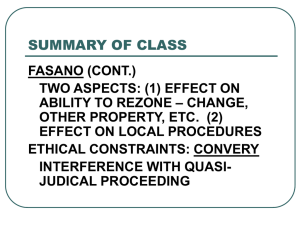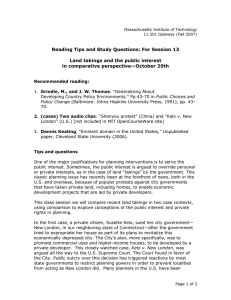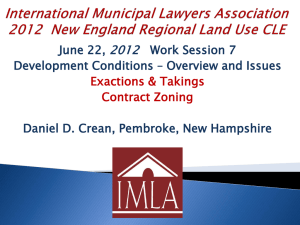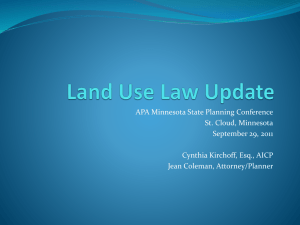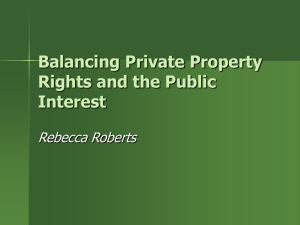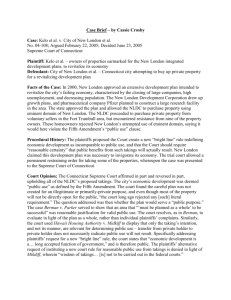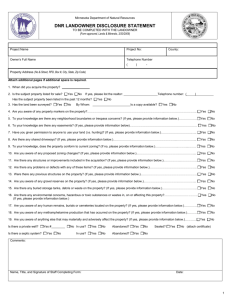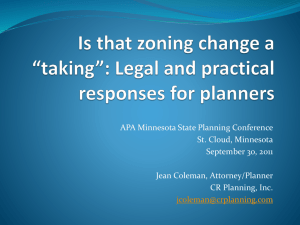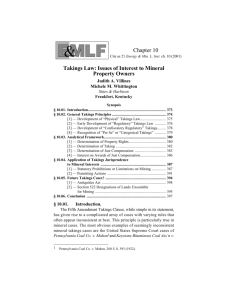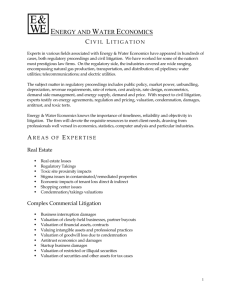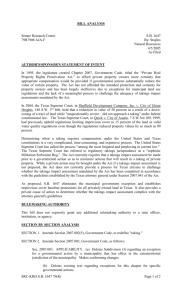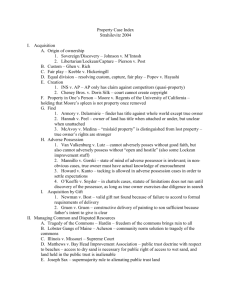AICP Flash Cards 3 of 7
advertisement
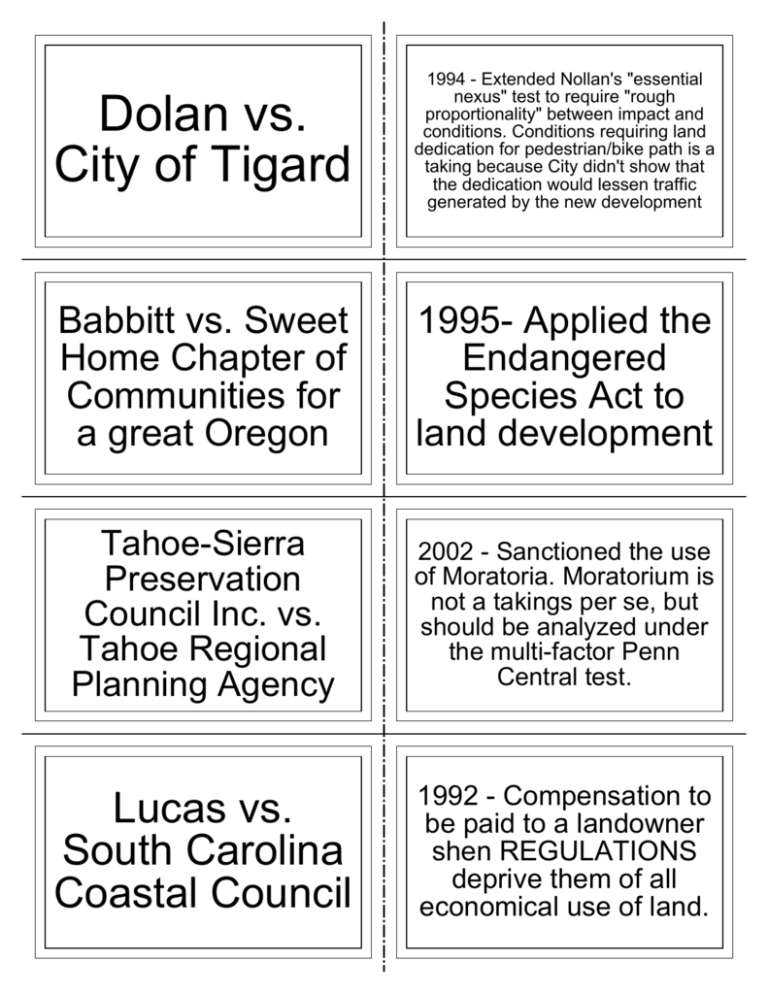
Dolan vs. City of Tigard 1994 - Extended Nollan's "essential nexus" test to require "rough proportionality" between impact and conditions. Conditions requiring land dedication for pedestrian/bike path is a taking because City didn't show that the dedication would lessen traffic generated by the new development Babbitt vs. Sweet Home Chapter of Communities for a great Oregon 1995- Applied the Endangered Species Act to land development Tahoe-Sierra Preservation Council Inc. vs. Tahoe Regional Planning Agency 2002 - Sanctioned the use of Moratoria. Moratorium is not a takings per se, but should be analyzed under the multi-factor Penn Central test. Lucas vs. South Carolina Coastal Council 1992 - Compensation to be paid to a landowner shen REGULATIONS deprive them of all economical use of land. Nollan vs. California Coastal Commission 1987-Created the "essential nexus" Takings Test. The town required a conveyance of an easement for beach access as a condition of a building permit for a home. The court found that it was unrelated to the public interest, and was therefore a taking. First English Evangelical Church of Glendale vs. Los Angeles County 1987- Compensation for temporary takings is invalidated in Court. Allows damages (as opposed to invalidation) as a remedy for regulatory takings. Williamson County Regional Planning Commission vs. Hamilton Bank 1985 - Defined "Ripeness" in takings cases. Owner must seek all possible relief (variance and condemnation) before going to court for a takings case. Southern Burlington County NAACP vs. Township of Mt. Laurel 1983- Model Fair Housing Remedy for Exclusionary Zoning. Loretto vs. Teleprompter Manhattan CATV Corp. 1982- Any physical occupation (no matter how small) is a taking. Law required landowners to install cable TV in their apartments was deemed to be a taking. Metromedia vs. City of San Diego 1981- Extended commercial speech to aesthetic regulations. Restricted both commercial and non-commercial billboards. Agins vs. City of Tiburon 1980 - Alternative takings test to Penn Central Test. Open space ordinance in California did not constitute a taking. Penn Central Transporation Compan vs. City of NY 1978 - Validated Historic Preservation. Found that restrictions on the development of the Grand Central Terminal were not a taking since they could transfer their development rights to other properties. Tennessee Valley Authority vs. Hill 1978 - (Snail Darter case). Upheld the Endangered Species Act of 1973 and prohibited the completion of the Tellico Dam. Village of Arlington Heights vs. Metropolitan Housing Development Corp. 1977- Discriminatory INTENT is required to invalidate zoning actions with Racially Disproportionate impacts. Young vs. American Mini Theaters 1976 - Opened up the possibility to regulate pornography via land use regulations Fasano vs. Board of County Commissioners of Washington County 1973- Required zoning to be consistent with the Comprehensive Plan Just vs. Marinette County 1972 - A landowner has no absolute right to change the natural character of the land so as to use it for a purpose it was not suited for in its natural state and which injures the rights of others. Golden vs. Planning Board of Ramapo 1972 - Adequate Public Facilities. Recognized Phased Growth. Sequential and orderly development in conjunction with the needs of the community and its ability to provide public facilities. Sierra Club vs. Morton 1972 - Opened up environmental suits to discipline Resource Agencies Citizens to Preserve Overton Park, Inc. vs. Volpe 1971 - Establishes the "hard look doctrine" for Environmental Impact Review. Also, said that building a federal highway through a public park was not okay if a feasible and prudent alternate route exists. Cheney vs. Village 2 at New Hope Inc. 1968Legitimized the PUD process. Berman vs. Parker 1954 - Established Aesthetics and redevelopment as VALID PUBLIC PURPOSES for Eminent Domain Village of Euclid vs. Amber Realty Company 1926 - Established zoning as a valid exercise of the Police Power Pennsylvania Coal vs. Mahon 1922 - 1st time the Supreme Court says that regulation of land may be a taking.
